Canadian Nikkei Series

The inspiration for this new Canadian Nikkei interview series is the observance that the gulf between the pre-WW2 Japanese Canadian community and the Shin Ijusha one (post-WW2) has grown tremendously.
Being “Nikkei” no longer means that one is only of Japanese descent anymore. It is far more likely that Nikkei today are of mixed cultural heritage with names like O’Mara or Hope, can’t speak Japanese and have varying degrees of knowledge about Japan.
It is therefore the aim of this series to pose ideas, challenge some and to engage with other like-minded Discover Nikkei followers in a meaningful discussion that will help us to better understand ourselves.
Canadian Nikkei will introduce you to many Nikkei who I have had the good fortune to come into contact with over the past 20 years here and in Japan.
Having a common identity is what united the Issei, the first Japanese to arrive in Canada, more than 100 years ago. Even in 2014, it is the remnants of that noble community that is what still binds our community today.
Ultimately, it is the goal of this series to begin a larger online conversation that will help to inform the larger global community about who we are in 2014 and where we might be heading to in the future.
Stories from this series

Equitably Speaking ... Lethbridge Nisei Rev. George Takashima - Part 2
May 10, 2018 • Norm Masaji Ibuki
Read Part 1 >> How did you become an educator? After graduating from high school, I spent the first year of a five-year Chartered Accountancy program working in a CA firm. After one year, I decided this was not for me even though I excelled in mathematics. My girlfriend at that time was going to enroll at London Normal School (later known as Teachers’ College) so she said why don’t I join her? Tuition was free because there was such …
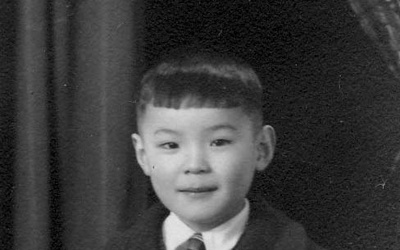
Equitably Speaking ... Lethbridge Nisei Rev. George Takashima - Part 1
May 9, 2018 • Norm Masaji Ibuki
With May being Asian Heritage Month, I am wondering how our Nikkei voices will in fact be heard? As a dedicated CBC (Canadian Broadcasting Corporation) radio listener and teacher who takes pride in celebrating all of the cultures that make up Canada’s highly celebrated multicultural society, I am curious somewhat about how our Asian stories of how we helped to build this country are going to be heard? Admittedly, there is a long lineup of marginalized voices who historically have …
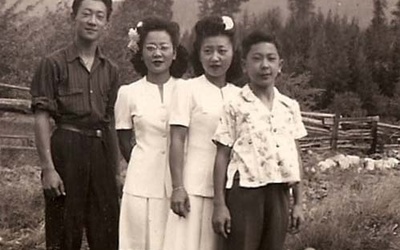
Toronto Nisei "Mush" Arima - Part 2
March 27, 2018 • Norm Masaji Ibuki
Read Part 1 >> What do you remember about life in the camps e.g., eating? Toilet? Baths? School? Your mother passed away there. Was she also buried there? I experienced my first train ride from Vancouver (Hasting Park) to Slocan City, a four-day trip. Quite exciting for me – for mother and sisters, tiring and exhausting with only sandwiches to eat. We arrived in Slocan City in the fall of 1942. There were no living quarters available. Some families whose …
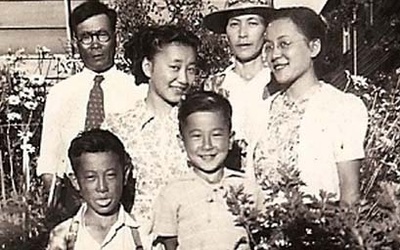
Toronto Nisei "Mush" Arima - Part 1
March 26, 2018 • Norm Masaji Ibuki
As the 75th anniversary of the internment came and went last year, I have promised myself to get more of the stories of the Nisei recorded in 2018 while I can. As serendipity would have it, I met Nisei Masayoshi “Mush” (Allan) Arima, 86, at a 75th internment anniversary luncheon at the Momiji retirement home in Toronto last fall. He was hanging out, reading some of the displays and I started up a casual conversation asking about where he was …
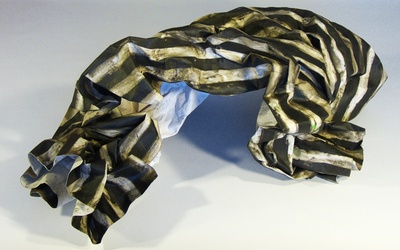
Unfurling The Symbolism of Canadian Artist Warren Hoyano - Part 2
Jan. 3, 2018 • Norm Masaji Ibuki
Read Part 1 >> Can you talk a bit about your own artistic process? Referring to a few pieces in the JCCC show, can you please talk about your own creation process? Can you please go into some detail about what the pieces mean to you too? I like to look for commonplace objects and symbols to work with. Almost everything has possibilities and it is up to me as an artist to see them. Through a process of experimentation, …
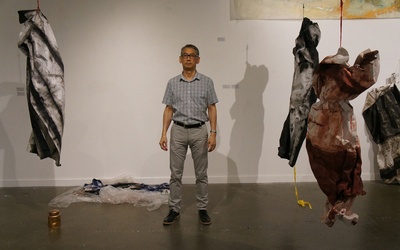
Unfurling The Symbolism of Canadian Artist Warren Hoyano - Part 1
Jan. 2, 2018 • Norm Masaji Ibuki
“I am using flags as a metaphor for the fears, beliefs, aspirations, and behaviors which arise in societies under extreme stress, whether real or imagined. This anxiety could be caused by threat of war or terrorist strike, the effects of climate change, or the possibility of attack from infectious diseases, as examples. The flag symbol can embody pride and hope for the future, as in the case of a young person or a refugee but also, exclusionary forms of nationalism …
 We’re looking for stories like yours!
Submit your article, essay, fiction, or poetry to be included in our archive of global Nikkei stories.
Learn More
We’re looking for stories like yours!
Submit your article, essay, fiction, or poetry to be included in our archive of global Nikkei stories.
Learn More
New Site Design
See exciting new changes to Discover Nikkei. Find out what’s new and what’s coming soon! Learn MoreWriter Norm Masaji Ibuki lives in Oakville, Ontario. He has written extensively about the Canadian Nikkei community since the early 1990s. He wrote a monthly series of articles (1995-2004) for the Nikkei Voice newspaper (Toronto) which chronicled his experiences while in Sendai, Japan. Norm now teaches elementary school and continues to write for various publications.
Updated August 2014

Discover Nikkei Updates
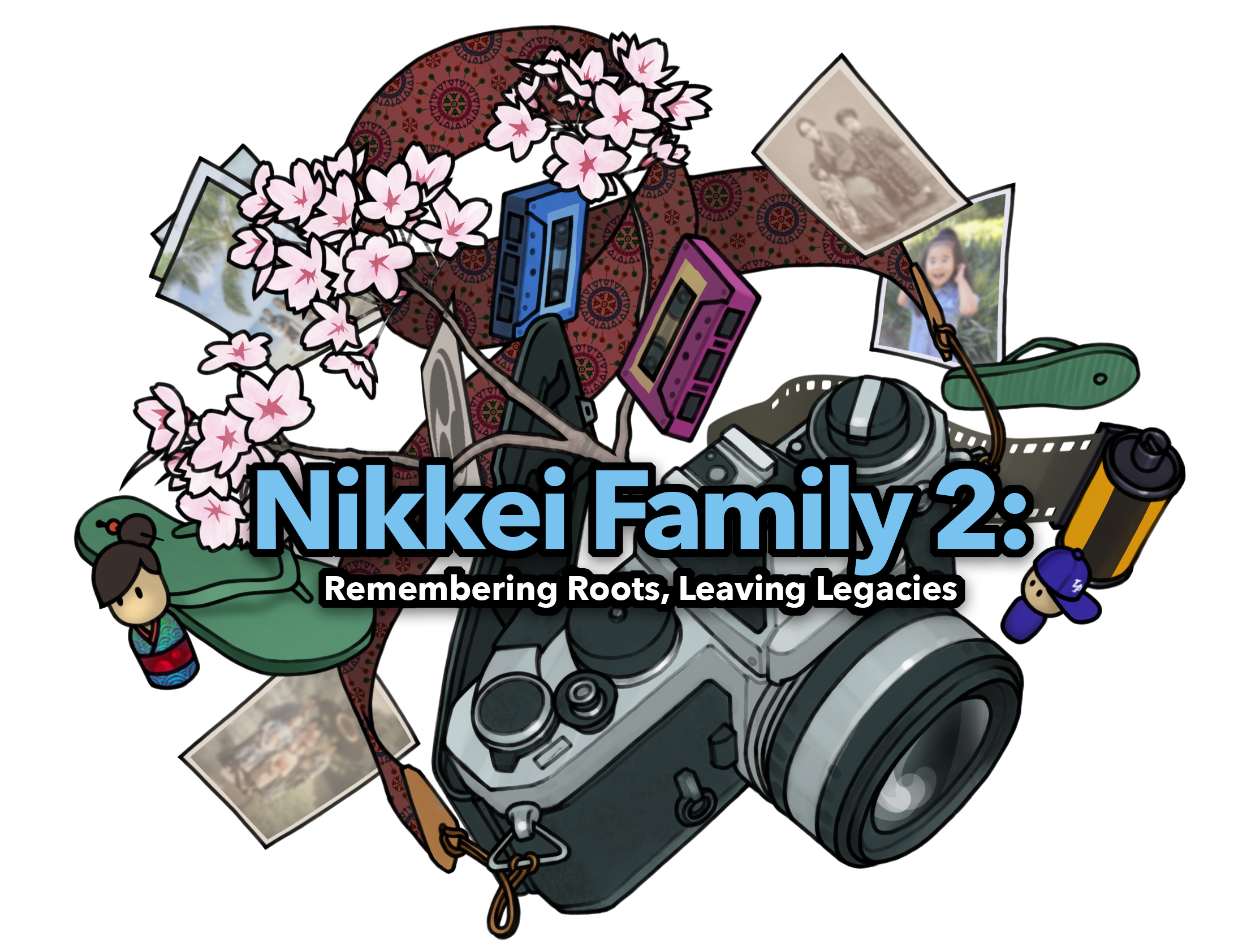
Baachan, grandpa, tía, irmão… what does Nikkei family mean to you? Submit your story!



